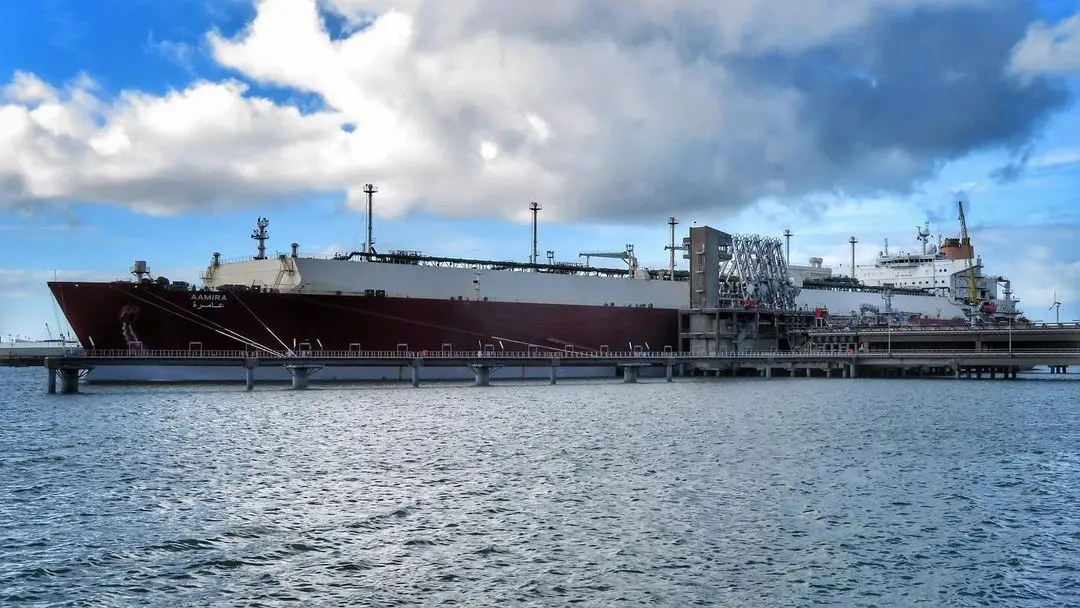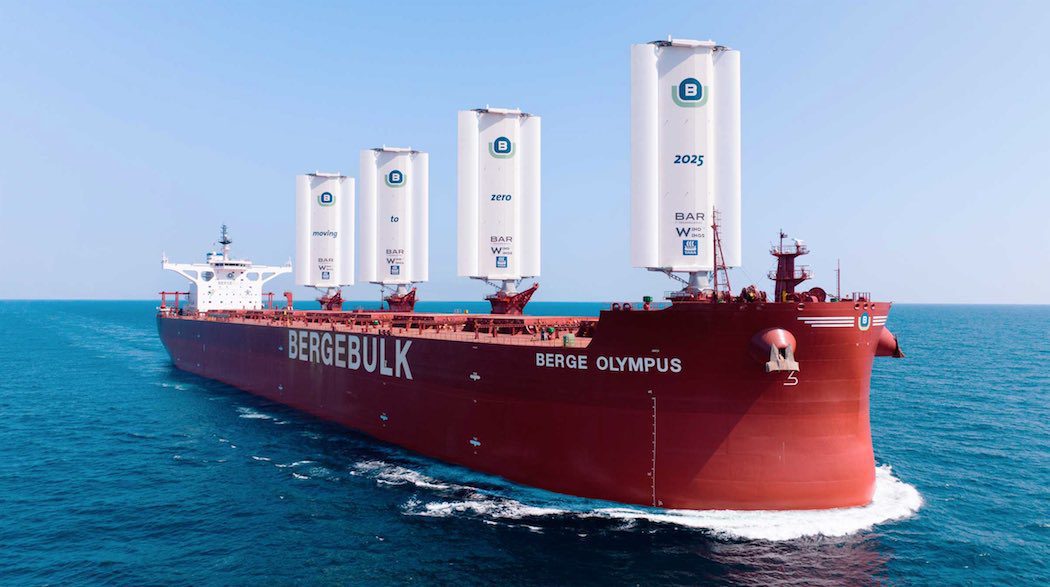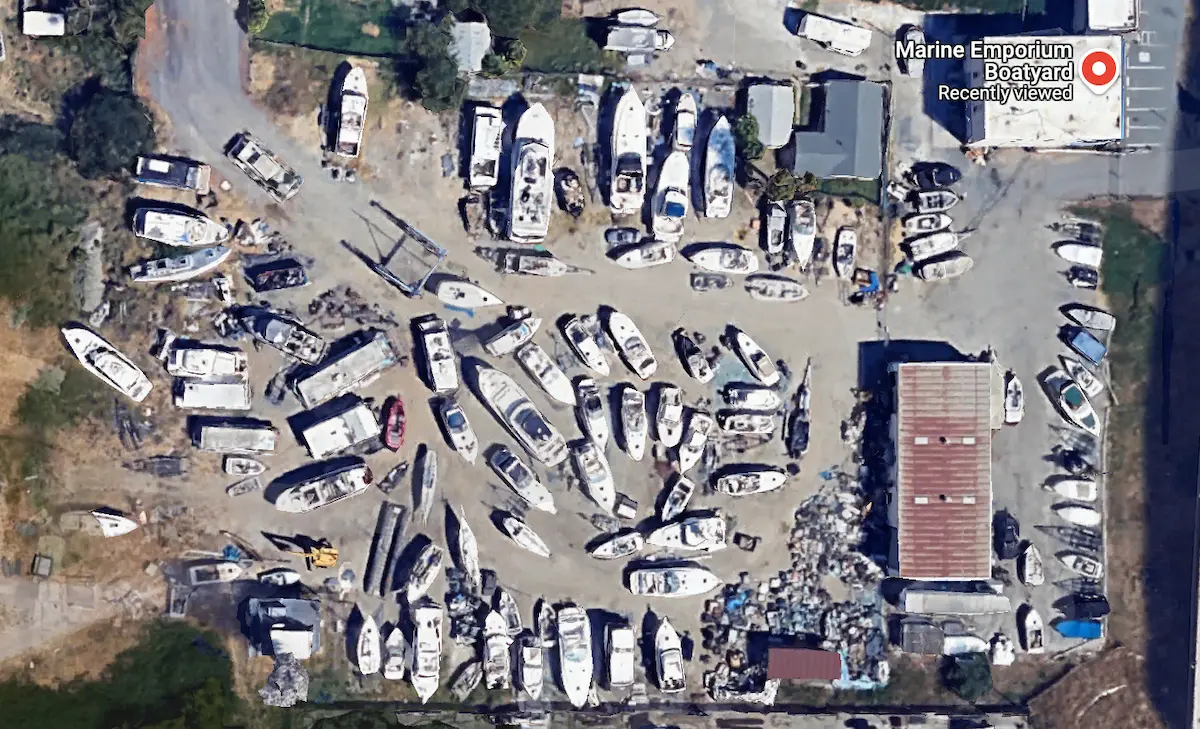Bunker trading is an essential aspect of the shipping industry, providing the necessary fuel for ships to operate.
Bunker fuel, also known as a marine fuel, is a type of fuel oil used on board ships. It is a heavy, viscous fuel that is a byproduct of crude oil distillation.
The quality and price of bunker fuel can vary greatly depending on its origin and the refining process.
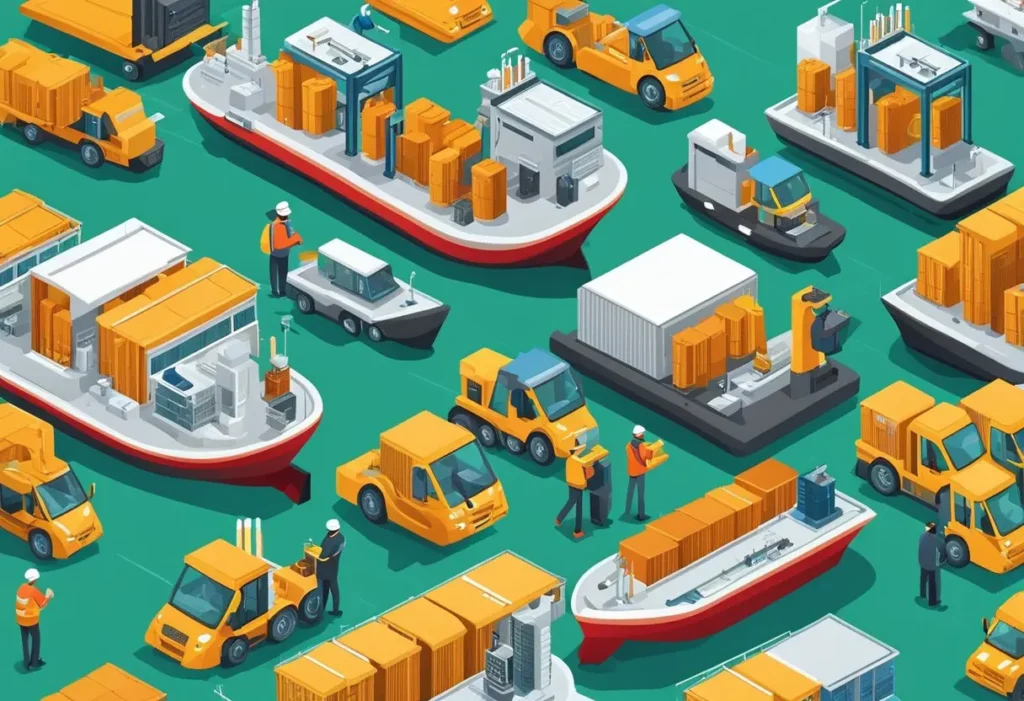
Bunker trading involves the buying and selling of bunker fuel between suppliers and ship owners.
Bunker traders act as intermediaries between the two parties, providing financing, credit lines, and extending credit terms to small and middle-tier ship owners. Traders also offer transparency of pricing and a fixed margin based on the risk and number of days that need financing.
With the implementation of the IMO 2020 regulation, which requires ships to use fuel with a maximum sulfur content of 0.5%, bunker trading has become more complex and challenging.
Bunker trading is a crucial part of the shipping industry, ensuring that ships have the necessary fuel to operate.
As the industry continues to evolve and regulations change, bunker traders must adapt and provide innovative solutions to meet the needs of their clients.
Understanding Bunker Trading
Bunker trading is the act of buying and selling fuel for ships, also known as bunkers. Bunker traders are responsible for negotiating the price and terms of the fuel sale between the buyer and the seller.
The bunker market is characterized by high volumes and low margins, which means that bunker traders must have a deep understanding of the market to make a profit.
Bunker traders must keep up with market trends and be able to predict changes in supply and demand.
They must also be able to assess the quality of the fuel being sold and ensure that it meets the required standards. Bunker traders may work for a trading company or as independent brokers.
The value of the fuel being traded is determined by the market and can fluctuate based on supply and demand. Bunker traders must be able to negotiate the best price for their clients while still making a profit for themselves.
Volume is another important factor in bunker trading. Bunker traders must be able to handle large volumes of fuel and ensure that it is delivered on time and in the correct quantity. They must also be able to manage the logistics of transporting the fuel from the supplier to the buyer.
Profit is the ultimate goal of bunker trading. Bunker traders must be able to balance the needs of their clients with their own profit margins. They must also be able to manage risk and ensure that they are not exposed to unnecessary financial losses.
Bunker trading is a complex and challenging business that requires a deep understanding of the market, the ability to negotiate effectively, and the skills to manage logistics and risk.
Bunker traders play a critical role in the shipping industry, ensuring that ships have the fuel they need to operate.
Related Posts:
Role of Bunker Traders
Bunker traders are professionals who specialize in the buying and selling of marine fuels, also known as bunkers. They are intermediaries between ship owners and bunker suppliers, providing valuable services to both parties.
The primary role of a bunker trader is to locate customers and negotiate, fix, and close deals. They work closely with agents at various ports for the delivery of bunkers to the vessels.
They provide a valuable service in financing the operations of small and middle-tier ship owners by providing credit lines and extending credit terms. This can be done in a variety of ways, and some will even offer transparency of pricing and a fixed margin based on the risk and number of days that need financing.
Bunker traders are responsible for keeping up-to-date with the latest market trends, analyzing supply and demand, and monitoring prices. They must be knowledgeable about the different types of marine fuels and their specifications, as well as the regulations governing their use.
Bunker brokers, on the other hand, act as intermediaries between the bunker traders and the ship owners. They have more information about the market than the shipping companies, and their primary role is to cover the market.
However, with the advent of the internet, much of this information is now freely available. As a result, the role of the bunker broker has changed.
Related Posts:
Regulations and Compliance
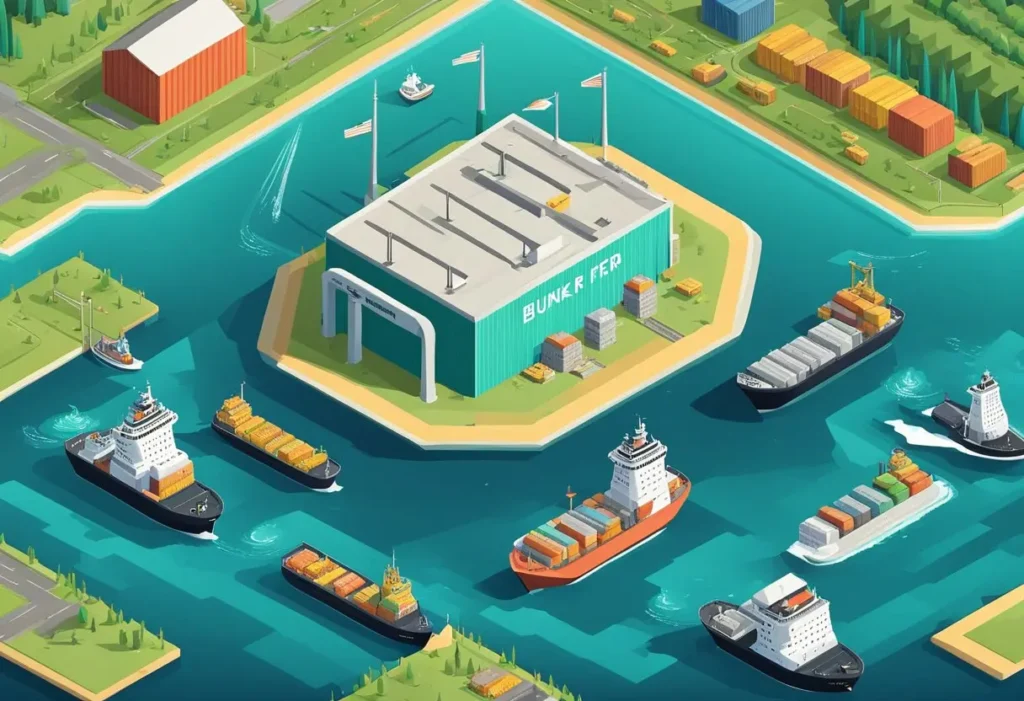
Bunker trading is subject to various regulations and compliance requirements, and it is essential for traders to stay up-to-date with the latest developments in this area.
One of the key regulatory bodies that bunker traders need to be aware of is the International Maritime Organization (IMO). The IMO is responsible for setting global standards for the safety, security, and environmental performance of international shipping.
In 2020, the IMO introduced new regulations known as IMO 2020, which aim to reduce the sulfur content in marine fuels. Under these regulations, ships are required to use fuels with a sulfur content of no more than 0.5%, down from the previous limit of 3.5%.
This has led to a significant shift in the bunker market, with many ships switching to low-sulfur fuels or alternative fuels such as liquefied natural gas (LNG).
Compliance with IMO 2020 regulations is essential for bunker traders, as failure to comply can result in hefty fines and damage to their reputation.
Traders need to ensure that the fuels they are supplying meet the required specifications and that they are properly documented and labeled. They also need to be aware of any local regulations that may apply in the ports where they are operating.
In addition to IMO 2020, there are other regulations and compliance requirements that bunker traders need to be aware of. For example, they need to comply with regulations related to the handling, storage, and transport of hazardous materials.
They also need to ensure that they are complying with anti-bribery and corruption laws, as well as sanctions and export control regulations.
Overall, bunker trading is a highly regulated industry, and traders need to be knowledgeable about the latest regulations and compliance requirements to ensure that they are operating legally and ethically.
By staying up-to-date with the latest developments in this area, traders can build a reputation for reliability and professionalism and ensure the long-term success of their business.
Risk Management in Bunker Trading
Bunker trading involves a significant amount of risk, and therefore, managing that risk is of utmost importance.
The bunker trading companies assume the role of quasi-banks and lend large amounts of money on unsecured terms for their fuel purchases. Therefore, understanding and evaluating the risk-return scenario accurately is one of the keys to success for a pure back-to-back trading company.
Risk Management Tools
To manage the risks associated with bunker trading, traders use several tools, including hedging, insurance, and market analysis.
Hedging is a financial instrument that allows the buyer to hedge their bunker exposure by fixing the price they pay for fuel at a predefined level over a predefined time period. This helps to mitigate the risk of price fluctuations in the market.
Insurance is another tool used by bunker traders to manage risk. Insurance policies can protect against various risks, including physical damage to the vessel, loss of cargo, and liability claims.
Market analysis is also an essential tool for risk management in bunker trading. Traders need to be aware of market trends and pricing to make informed decisions.
They use market data to analyze the supply and demand of bunker fuel, which enables them to predict price movements and make informed decisions.
Pricing and Risk
Pricing is a critical factor in risk management in bunker trading. Traders need to be aware of the current market prices and how they may change in the future. They need to be able to predict the market trends and adjust their pricing accordingly.
Risk management in bunker trading is a complex process that requires knowledge, experience, and expertise. Traders need to be able to analyze the market, manage their exposure to risk, and make informed decisions based on market trends and pricing.
Bunker Trading Market
Bunker trading is an essential part of the shipping industry that involves the buying and selling of marine fuels, such as heavy fuel oil (HFO), marine gas oil (MGO), and low sulfur fuel oil (LSFO).
The bunker trading market is highly competitive, and the demand for bunker fuel is primarily driven by the shipping industry’s needs.
Shipping companies are the primary customers of bunker traders, and they require large volumes of fuel to power their vessels. The demand for bunker fuel is directly linked to the shipping industry’s growth, and the market is expected to grow in tandem with the global economy.
Bunker traders operate in a highly competitive market, and competition is fierce. The profit margins in the bunker trading market are relatively low, and traders must work hard to maintain their market share.
To stay ahead of the competition, traders must provide value to their customers by offering competitive prices, reliable delivery, and excellent customer service.
The bunker trading market is also influenced by regulations and environmental concerns. As the shipping industry becomes more environmentally conscious, the demand for cleaner-burning fuels like LSFO is expected to increase.
Bunker traders must keep up with these changes and adapt to meet the changing demands of the market.
In conclusion, the bunker trading market is an essential part of the shipping industry, and it plays a critical role in keeping vessels powered and moving. Traders must work hard to maintain their market share in a highly competitive market by offering value to their customers and adapting to changing market conditions.
Technological Influence on Bunker Trading
Technology has had a significant impact on the bunker trading industry in recent years.
With the advent of the internet, information that was once only available to bunker brokers is now freely accessible to shipping companies. This has changed the role of the bunker broker, who was originally responsible for covering the market due to having more information than shipping companies.
However, the abundance of information available today has not necessarily made the process of bunker buying any easier. In fact, it has made it more complicated, as buyers and sellers must now sift through a vast amount of data to make informed decisions.
Despite this, there are several benefits to embracing technology in bunker trading. Firstly, it can improve the buyer and seller experience by providing easy access to information. This includes real-time market data and pricing, which can help buyers and sellers make more informed decisions.
Another significant advantage of technology in bunker trading is the increased transparency and traceability of transactions. Blockchain technology, for example, can be used to secure the probity of evidence in a dispute. It can also help to develop electronic Bunker Delivery Notes for verification purposes.
However, there are legal challenges to adopting blockchain smart contracts due to legal ambiguity. Additionally, the bunker industry is characterized by high volumes and low margins, making it challenging to deliver heavy fuel oil safely, efficiently, and in compliance.
Overall, technology has had both positive and negative impacts on the bunker trading industry. While it has made information more accessible, it has also made the process more complex. Nevertheless, embracing technology can lead to improved transparency, traceability, and overall user experience.
Bunker Trading Logistics
Bunker trading logistics involves the process of supplying fuel for use by ships, including the logistics of loading and distributing the fuel among available shipboard tanks. A person dealing in trade of bunker fuel is called a bunker trader.
Bunker operations are a critical part of a vessel’s dynamic work schedule and are classified as a vital process. Therefore, careful planning and coordination between all parties is required for fuel orders.
In bunker trading logistics, the bunker trader acts as a middleman between the buyer and the supplier. The bunker trader negotiates the price, quality, and quantity of fuel required by the buyer.
The bunker trader also handles the logistics of the fuel delivery, including coordinating with the supplier, arranging for transport, and ensuring that the fuel is delivered on time and in the correct quantity and quality.
The logistics of bunker trading also involve the coordination of shipping schedules with the availability of fuel at ports. The bunker trader must ensure that the fuel is available at the port when the ship arrives. This requires careful monitoring of shipping schedules and fuel availability at ports.
In addition to coordinating the logistics of fuel delivery, the bunker trader must also ensure that the fuel meets the quality standards required by the buyer.
This involves testing the fuel to ensure that it meets the required specifications for viscosity, density, and other parameters. The bunker trader may also provide advice on the best fuel to use based on the ship’s engine specifications and other factors.
Overall, the logistics of bunker trading require careful planning and coordination to ensure that fuel is delivered on time and in the correct quantity and quality. The bunker trader plays a critical role in this process, acting as a middleman between the buyer and the supplier and coordinating the logistics of fuel delivery.
Financial Aspects of Bunker Trading
Bunker trading is a complex business that involves various financial aspects. Understanding these aspects is crucial for traders to make profitable deals. In this section, we will discuss some of the financial aspects of bunker trading.
Profit
Profit is the ultimate goal of bunker trading. Bunker traders aim to buy fuel at a lower price and sell it at a higher price, making a profit in the process. However, the profit margin in bunker trading is relatively low, and traders need to sell a large volume of fuel to make a significant profit.
Costs
Bunker trading involves several costs, such as transportation, storage, and insurance. Traders need to factor in these costs when negotiating prices with buyers and sellers. Moreover, bunker trading is a risky business, and traders need to allocate a portion of their profits to cover potential losses.
Banks
Banks play a crucial role in bunker trading. Bunker traders often rely on banks to finance their transactions. Banks provide credit lines to traders, allowing them to purchase fuel without having to pay upfront. However, banks charge interest on these credit lines, which adds to the cost of bunker trading.
Credit Lines
Credit lines are essential for bunker traders to operate their business. Traders need to maintain a good credit rating to secure credit lines from banks. Moreover, credit lines are subject to approval, and traders need to provide collateral to secure them. Bunker traders need to manage their credit lines effectively to avoid defaulting on their loans.
In summary, bunker trading is a complex business that involves various financial aspects. Traders need to understand the profit margin, costs, banks, and credit lines to make profitable deals. Moreover, bunker trading is a risky business, and traders need to manage their finances effectively to avoid losses.
Bunker Trading in Singapore
Singapore is one of the largest and most important bunkering ports in the world. Bunkering is the process of supplying fuels to ships for their own use. The industry is a significant contributor to Singapore’s economy, with the country’s strategic location and excellent infrastructure making it an attractive hub for marine fuel trading.
Bunker trading in Singapore is a complex process that involves a variety of entities, including bunker suppliers, traders, brokers, and ship owners. The process begins when a ship owner or operator contacts a bunker supplier to order fuel. The bunker supplier then sources the fuel from a refinery or storage terminal and delivers it to the ship.
There are several types of marine fuel available for bunkering in Singapore, including low sulfur fuel oil (LSFO), marine gas oil (MGO), and marine diesel oil (MDO). The choice of fuel depends on the ship’s engine type and the environmental regulations in force at the time.
Bunker trading in Singapore is highly regulated, with the Maritime and Port Authority of Singapore (MPA) overseeing the industry. The MPA sets standards for bunker quality and quantity, and ensures that bunkering operations are conducted safely and efficiently.
In recent years, the industry has undergone significant changes, with the introduction of new regulations aimed at reducing emissions from ships. The International Maritime Organization’s (IMO) global sulfur cap, which came into effect in 2020, requires ships to use fuel with a maximum sulfur content of 0.5%. This has led to a shift towards LSFO and other low sulfur fuels.
Overall, bunker trading in Singapore is a vital component of the global shipping industry, providing ships with the fuel they need to operate efficiently and safely. With its strategic location and excellent infrastructure, Singapore is well-positioned to remain a key player in the industry for years to come.
Frequently Asked Questions
What is bunkering and how is it done?
Bunkering is the process of supplying fuel to a ship. It involves transferring fuel from a bunker barge or tanker to the ship’s fuel tanks. The process can be done either through a pipeline or by using a hose. Bunkering can take place either at a port or while the ship is at sea.
Who is responsible for receiving bunkers during the bunkering process?
The chief engineer or the designated representative is responsible for receiving bunkers during the bunkering process. The chief engineer is responsible for ensuring that the fuel is of the correct quality and quantity and that the bunkering process is carried out in a safe and efficient manner.
What are the different types of bunkering?
There are four main types of bunkering: pipeline bunkering, barge-to-ship bunkering, ship-to-ship bunkering, and truck-to-ship bunkering. Pipeline bunkering involves transferring fuel through a pipeline from a storage tank to the ship. Barge-to-ship bunkering involves using a bunker barge to transfer fuel to the ship. Ship-to-ship bunkering involves transferring fuel from one ship to another. Truck-to-ship bunkering involves using a tanker truck to transfer fuel to the ship.
What is a bunker trade and how does it work?
A bunker trade is the buying and selling of fuel for ships. Bunker traders act as intermediaries between buyers and sellers of fuel. They negotiate the price and terms of the transaction and arrange for the delivery of the fuel. Bunker traders must have a good understanding of the fuel market and be able to anticipate market trends.
What are the qualifications required for a bunker trader?
A bachelor’s degree in business, finance, or a related field is usually required for a career in bunker trading. In addition, bunker traders must have excellent negotiation and communication skills, as well as a good understanding of the fuel market.
What is the salary range for a bunker trader in Singapore?
The salary range for a bunker trader in Singapore can vary depending on experience and qualifications. According to Glassdoor, the average salary for a bunker trader in Singapore is SGD 100,000 to SGD 150,000 per year. However, salaries can range from SGD 60,000 to SGD 250,000 per year depending on the company and the individual’s experience and qualifications.
- Types of Gas Carriers as per IGC Code – April 22, 2025
- Wind-Assisted Propulsion Systems (WAPS): A Game Changer for Maritime Decarbonization – February 6, 2025
- 10 Boat Salvage Yards in California – January 25, 2025



